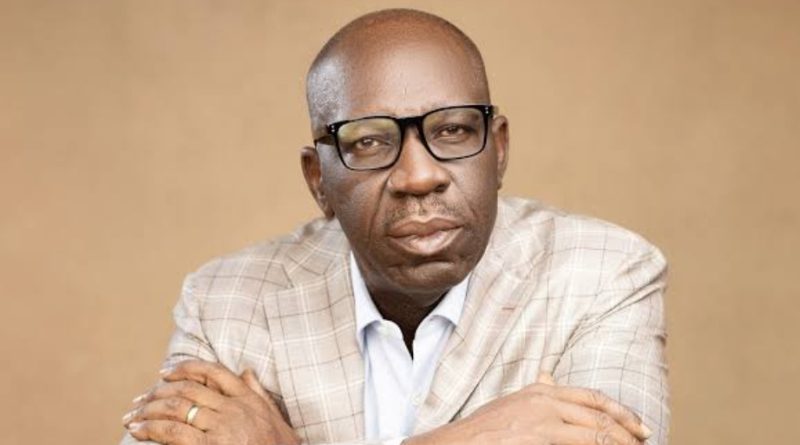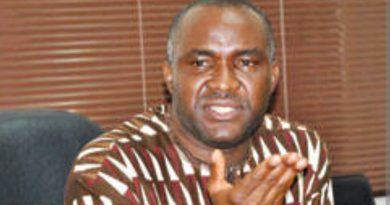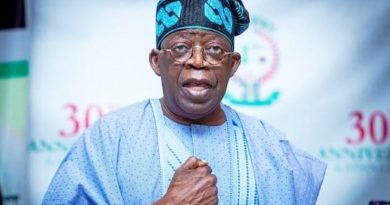SHATTERED DREAMS: The Trail of Deception Surrounding Edo State’s Seaport Project
John Mayaki
Once upon a time in 2016, the people of Edo State eagerly awaited the fulfillment of a promise made by Governor Godwin Obaseki. He pledged to deliver a deep-sea port before the end of his first term in office, filling the hearts of the people with hope for economic growth and prosperity.
As time went on, Obaseki entered his second term, with only one year left in office, and the promised seaport had yet to see the light of day. Disappointment filled the air, and questions arose about the governor’s commitment to his words.
In November 2017, a glimmer of hope appeared when news broke that the governor had received a technical report on the proposed Gelegele Seaport, now known as the Benin seaport. The report, led by Chairman Greg Ero, was expected to pave the way for progress and development.
January 2018 brought another significant event, as Governor Obaseki signed a Memorandum of Understanding (MoU) with China Harbour Engineering Company Limited, marking a milestone in the project’s development. Excitement grew as plans for an Inland Container Depot in Edo state were unveiled, with the Chinese firm indicating their readiness to partner with Atlantique Marine Engineering Services for export purposes.
By March 2018, work on the Gelegele Seaport was said to be intensifying, fueling optimism among the government and the people. The governor expressed confidence in the project’s timely delivery, with China Harbour Engineering Company Limited working diligently on soil testing and ground mapping, adhering to best environmental practices.
Yet, as the years rolled on, promises began to lose their luster. In May 2018, reports of securing preliminary approvals for financing raised hopes, but additional funding expected by September failed to materialize. Progress seemed elusive, and doubts crept into the minds of the people.
In September 2018, Governor Obaseki signed an agreement with China Harbor Engineering Company for the development of the Benin Port, along with the Benin Industrial Park and a modular refinery. This development offered a glimmer of hope, but doubts remained.
The subsequent years were filled with a mix of statements, appointments, discussions, and proposals. Various actors and entities emerged, all claiming progress, yet conflicting reports and contradictions painted a picture of uncertainty and deception.
June 2023 arrived, bringing a renewed defense of the project from Governor Obaseki. Plans to sign with the Port of Antwerp in Belgium were announced, raising expectations once again. The groundbreaking of the Benin River Port Project was scheduled for August of the same year, promising completion within 24 to 36 months.
However, the headlines in the newspapers could not hide the disillusionment felt by the people. Mota Engil Africa emerged as the preferred bidder, yet this announcement clashed with earlier assurances, deepening the skepticism surrounding the project’s fate.
Unrealized promises, delays, and conflicting reports left the people of Edo State feeling betrayed and disheartened. The seaport, once a beacon of hope, had become a symbol of deceit and broken dreams. The journey towards a vibrant seaport and the prosperity it could bring remained an elusive tale, with the truth obscured by a web of uncertainty and disappointment.
The government’s handling of the seaport project in Edo State has undoubtedly been marred by deceit and the propagation of unrealistic promises. Governor Godwin Obaseki’s initial commitment to deliver a deep-sea port before the end of his first term raised the hopes of the people, only for those hopes to be dashed as he entered his second tenure with the project still nonexistent.
The discrepancies and contradictions throughout the timeline of events surrounding the project paint a picture of a government that failed to live up to its commitments. From the name change of the proposed port to the shifting expectations of groundbreaking dates and funding arrangements, the lack of transparency and coherence in the government’s communication has bred skepticism and disillusionment.
Furthermore, the constant reliance on foreign partnerships, such as China Harbour Engineering Company Limited and the Port of Antwerp, raises concerns about the government’s ability to independently drive and execute crucial infrastructure projects. The repeated announcement of partnerships, signings, and memorandums of understanding without tangible progress only adds to the sense of deception.
The broken promises and unfulfilled commitments have left the people of Edo State in a state of uncertainty, hindering their economic prospects and eroding trust in the government. Such deception not only undermines the credibility of the leadership but also reflects a disregard for the welfare and aspirations of the citizens.
It is crucial for governments to be honest and transparent with their constituents, especially when it comes to major infrastructure projects that hold significant implications for the region’s development. The people deserve clarity, realistic timelines, and genuine commitment from their leaders, rather than empty rhetoric and false assurances. The government’s failure to deliver on its promises regarding the seaport project highlights a significant betrayal of the people’s trust and a lack of responsible governance.
In all of these, it is imperative that the Edo State Government provides the public with comprehensive information regarding the yearly budgetary allocation specifically designated for the seaport project, along with a transparent account of the amount that has been expended to date. The people have a vested interest in understanding how their tax contributions are being utilized and the progress being made on this significant endeavor. Openness and accountability in disclosing the financial aspects of the project will foster trust and confidence among the citizens, enabling them to actively engage in monitoring and evaluating the project’s implementation. By keeping the public well-informed about the budget allocation and expenditure, the government can demonstrate its commitment to responsible financial management and ensure that the project’s objectives are met effectively and efficiently.
Mayaki is a developmental and multi-skilled journalist, Historian and Diplomat. He’s a Communication, Culture and Media expert (Coventry University, England). An Oxford and Cambridge University-trained entrepreneurship, leadership and sustainability expert. He’s also a Professional Consultant on Communication, Management and Strategy (Chattered Management Institute, England).
 About John Mayaki
About John Mayaki
John Mayaki is a developmental and multi-skilled journalist, Historian and Diplomat. He’s a Communication, Culture and Media expert (Coventry University, England). An Oxford and Cambridge University-trained entrepreneurship, leadership and sustainability expert. He’s also a Professional Consultant on Communication, Management and Strategy (Chattered Management Institute, England).
He writes from Abuja, Nigeria
He can be reached on info@johnmayaki.com




